Justine Lupe Has Hit the Mother Lode
The Nobody Wants This actress gets candid on motherhood, acting, and the animal underneath it all.
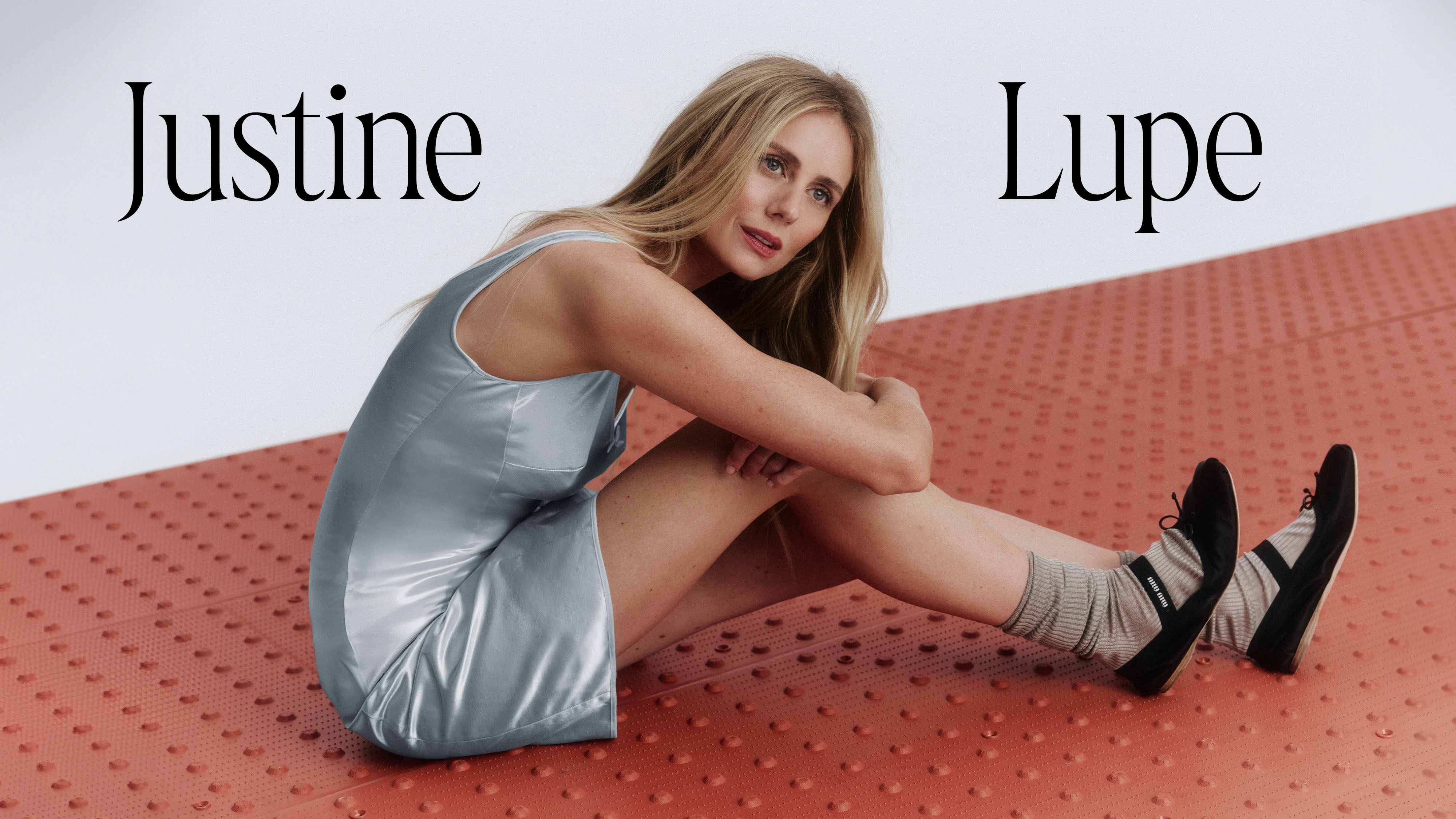
On a warm, sunny day in September, I'm meeting Justine Lupe at a podcast studio in downtown Los Angeles. She arrives wearing the classic mom uniform: a button-down and jeans. But there's something cool and unstudied about her take. The crisp baby-blue Courrèges top, the perfectly-worn-in jeans, and the unbothered kitchen clogs make the whole look feel refreshingly unforced. Before the cameras roll, she admits she needs mom friends and asks where I live. I tell her Laurel Canyon. She responds, "Too far." Alas. Even if you've only known Lupe for 15 minutes, you understand she's magnetic, warm, and—above all—authentic, and you definitely want to be her mom friend.
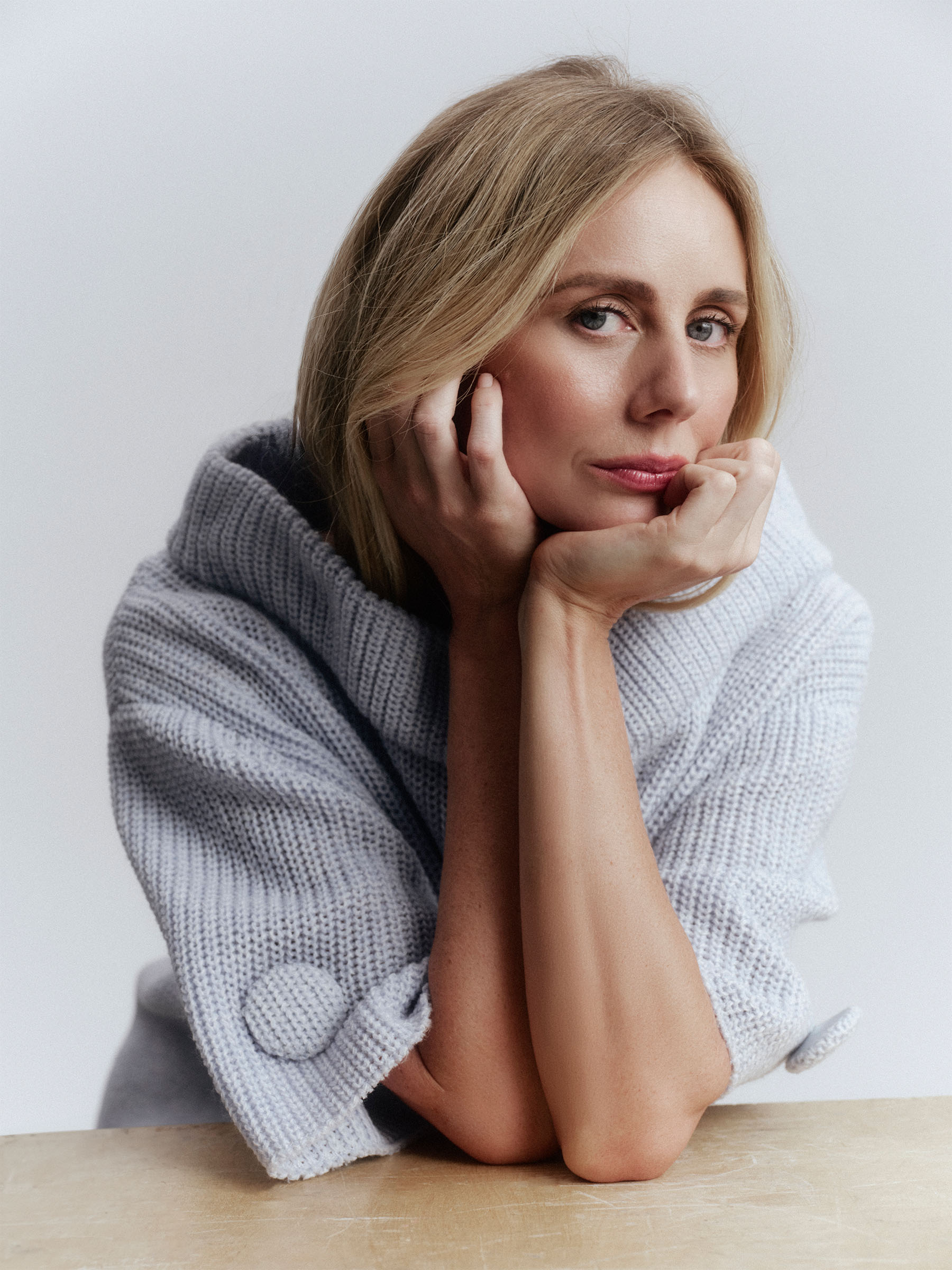
I kick off the interview noting Lupe's return for the highly anticipated second season of Netflix's Nobody Wants This and declare it an exciting moment for us. Awkward. I have nothing to do with the show. Mercifully, she laughs, "Thank you for being excited on my behalf." My accidental overstep hints at the dedicated fandom surrounding the breakout rom-com; everyone I know is highly invested. Indeed, when Netflix released the trailer, the comments shared a similar sentiment: "Literally everyone wants this."
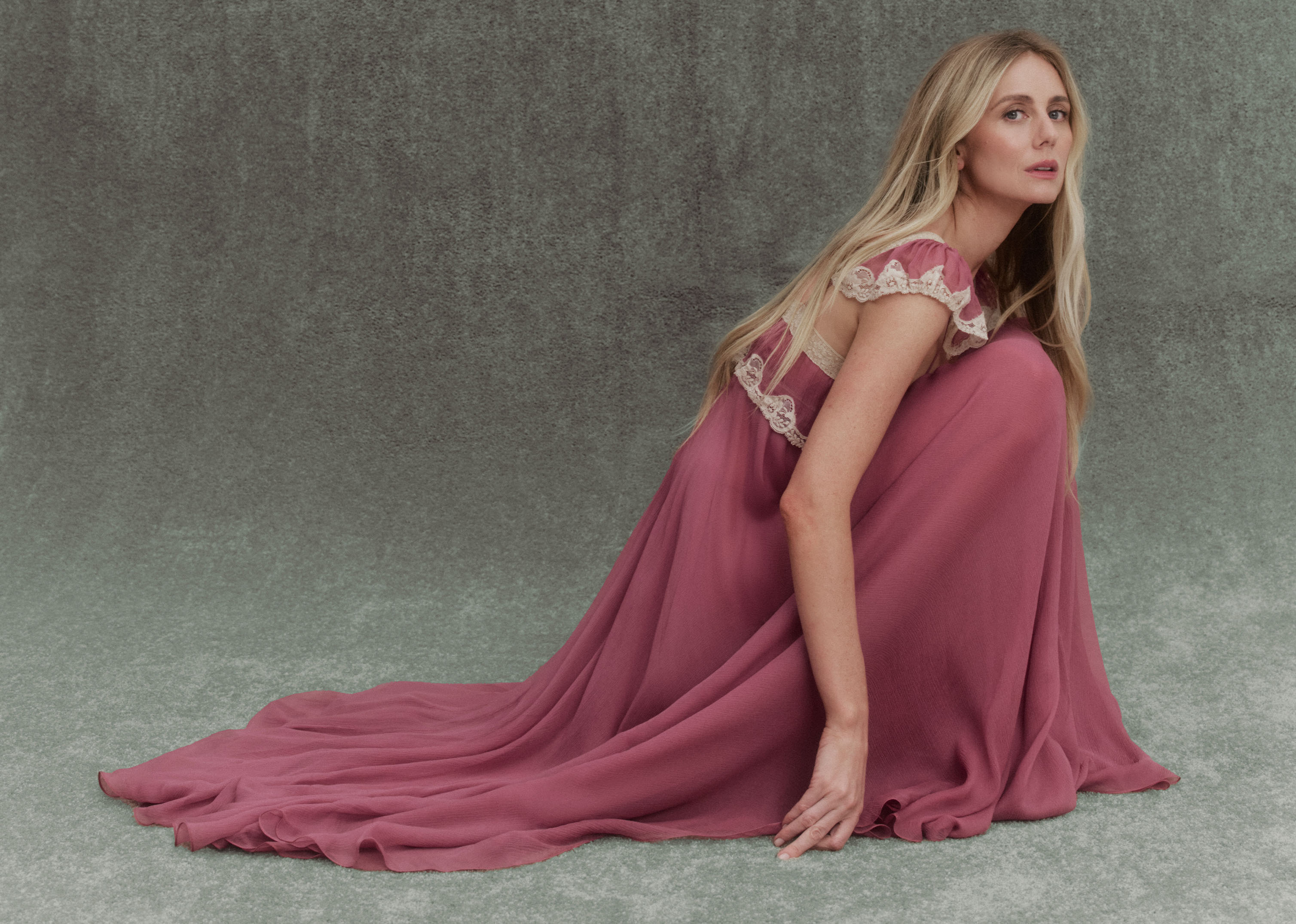
If you're just tuning in, Lupe plays Morgan, the quick-witted younger sister to Kristen Bell's Joanne. The story is anchored by Joanne's roller-coaster interfaith love story with a "hot rabbi," Adam Brody, and Morgan delivers the no-filter hot takes and dry humor that make their sister dynamic one of TV's most relatable. This new season comes with some notable upgrades, signaling increased investment: New guest stars like Leighton Meester join the mix ("so sweet and friendly," Lupe says, "but also so funny and goofy"), and behind the scenes, Girls alumni Jenni Konner and Bruce Eric Kaplan are on board as showrunners. "They really wanted to give the audience what they loved about last season," Lupe tells me. "It carries over beautifully, but there's new stuff too. It expands into something different."
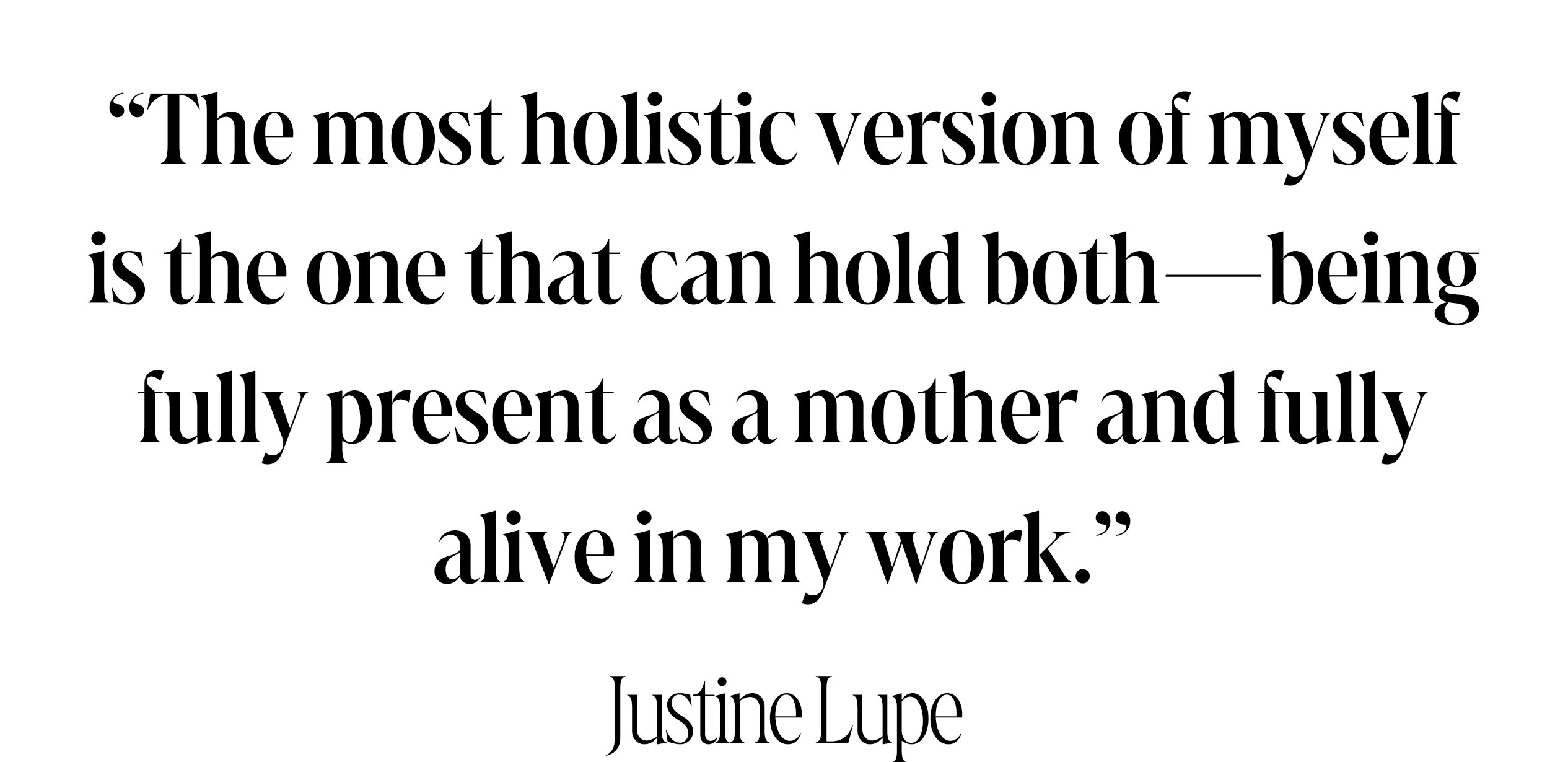
Nobody Wants This is Lupe's largest role to date, and the celebrated show was nominated for three Emmys earlier this year. (Lupe was a vision in a sheer Carolina Herrera dress for the awards show). Nearly 15 years out of Juilliard, she has built a career on smart, quietly powerful performances, including Succession's Willa Ferreyra, the escort-turned-fiance of the eldest son Connor Roy, and The Marvelous Mrs. Maisel’s Astrid Weissman, an earnest Jewish convert married to Midge Maisel's brother. Last year, though, she took on her most transformative role yet: motherhood.
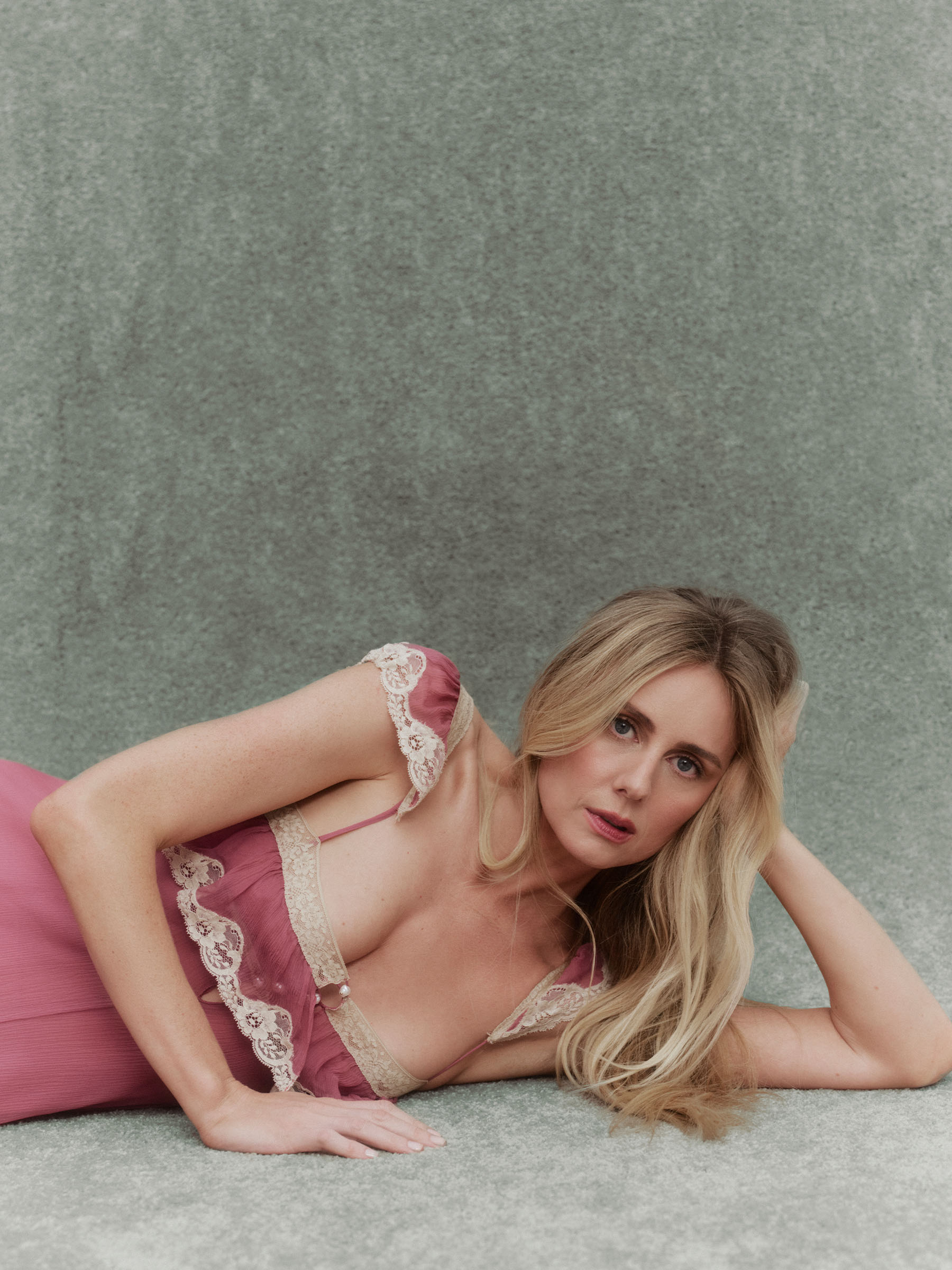
Lupe's matrescence has arced across filming both seasons of Nobody Wants This. In the first season, it was pregnancy. "I started the job right at the end of my first trimester," she explains. "It was divine intervention in a real way because I felt like I had mono through my first trimester. I could not get up." Enter the second trimester, a shift of tides as Lupe felt reinvigorated, experiencing a "renaissance moment—birds are singing." She chuckles as she reveals one of the biggest challenges was a burrito baby. "I would eat a burrito, and then everything would just pop open. My skirt would just be on the ground, and I'd be like, 'Oh no, I'm expanding past the capacity of my clothes,'" she says. Lupe mentions the unsung heroes of the season: the costume department, who offered steadfast generosity while having to frequently refit her changing body.
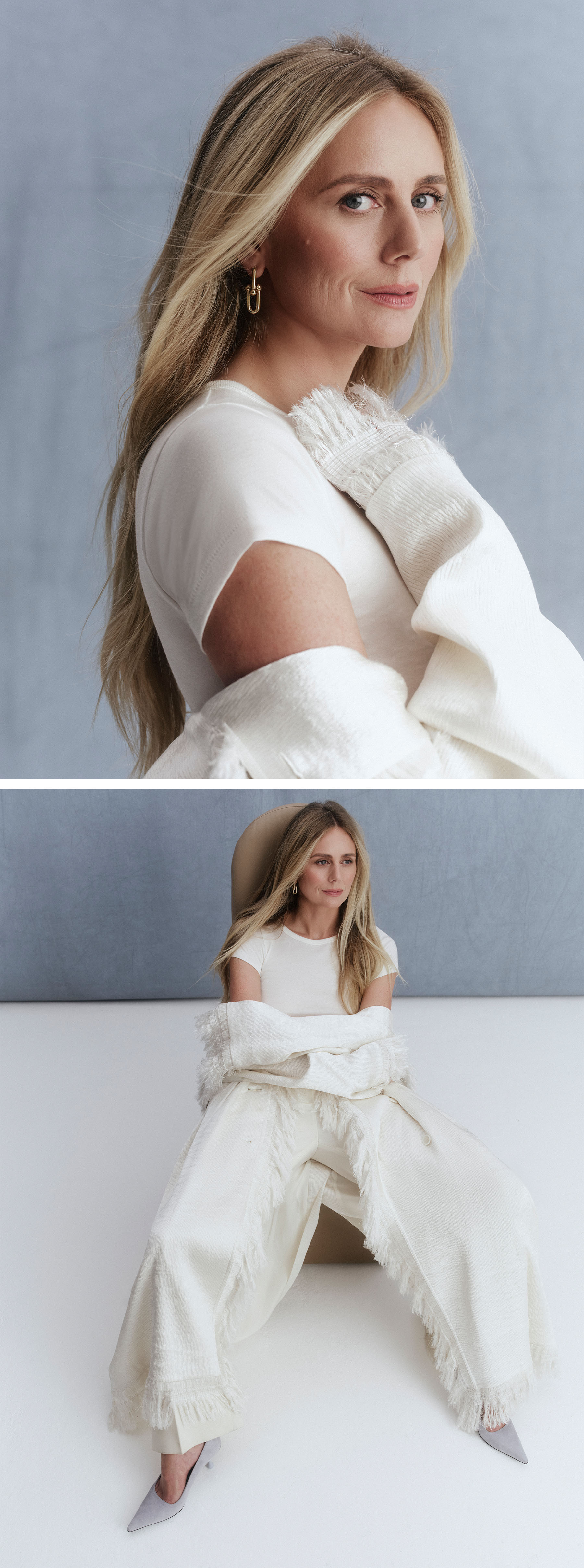
I ask Lupe what she thinks isn't discussed enough with new parenthood, and she answers definitively: the hormonal shift when weaning. When filming the second season, Lupe's milk production quickly shut down, causing a drastic swing in hormones. She explains, "I had crazy anxiety. It was a little bit scary. I felt a different thing than I'd ever felt—sad, anxious. My body was totally out of control, and my brain didn't understand what was going on. I didn't have any postpartum depression. But this was real, and I didn't know anything about it." The symptoms lasted over two months, long enough to wonder if this is the "new you." When Lupe started to share with her network, some of her friends realized in retrospect that it had happened to them too, finally having a "why" for this dark period of the postpartum journey.
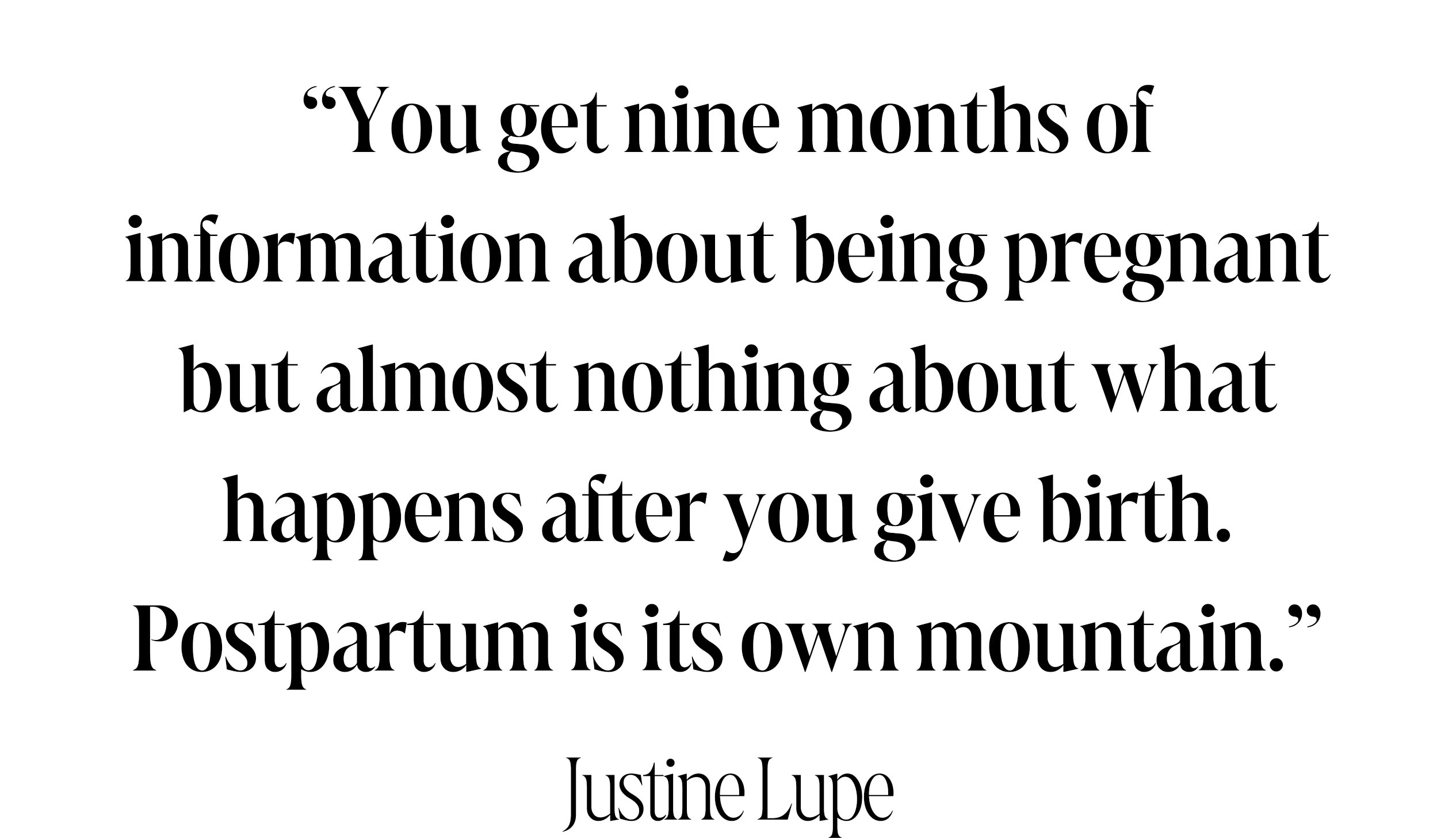
Most new moms would agree that the aftershocks of postpartum aren't spoken about enough. You may get whispers and shadows of an idea, but "there's just no preparation possible for the impact of what that is after giving birth," admits Lupe. "It's this hugely steep learning curve," even when you have incredible women guiding your path. She adds, "I lucked out, in that I got to experience Sarah Snook being pregnant all through Succession season 4 and see what she could do. I think there's something psychosomatic about knowing someone can do that kind of work. It's like an expander." When Lupe became pregnant, Snook stepped up again. "She gave me some really great podcasts to listen to for the fourth trimester, which is postpartum, and when postpartum came, she checked in on me. She was really helpful in terms of being like, 'You have nine months of pregnancy, and you're gonna get so much information about being a pregnant woman, and people forget about what happens after you give birth,'" she says. I can confirm: A postpartum woman never forgets who shows up for her. Snook wasn't the only mom Lupe mentions. She says, "KB (Kristen Bell) just has a maternal air about her. She always has snacks, and she's always giving advice and has an article that she just read."

These connections between women who have been there and those just stepping through the doorway into motherhood form their own kind of quiet lineage. Still, society overall hasn't entirely caught up. Admittedly, we've come a long way from when Desi Arnaz had to battle execs to include Lucille Ball's pregnancy in an I Love Lucy plotline, as even the word "pregnant" was considered too explicit for television. Lupe had a markedly positive experience sharing her pregnancy on set ("all the execs were cheering me on," she shares, "and it was a really warm reception"), but at the same time, she notes there are still norms toward obscurity. "It's funny that it's something that's so part of our life. It's so intrinsic to us all being here, and yet it's secretive," she says. I have a hunch that, for her, keeping a massive life milestone in the shadows is not an option. The thing about Lupe is she is disarmingly, unapologetically candid, and I think it's part of her magic.
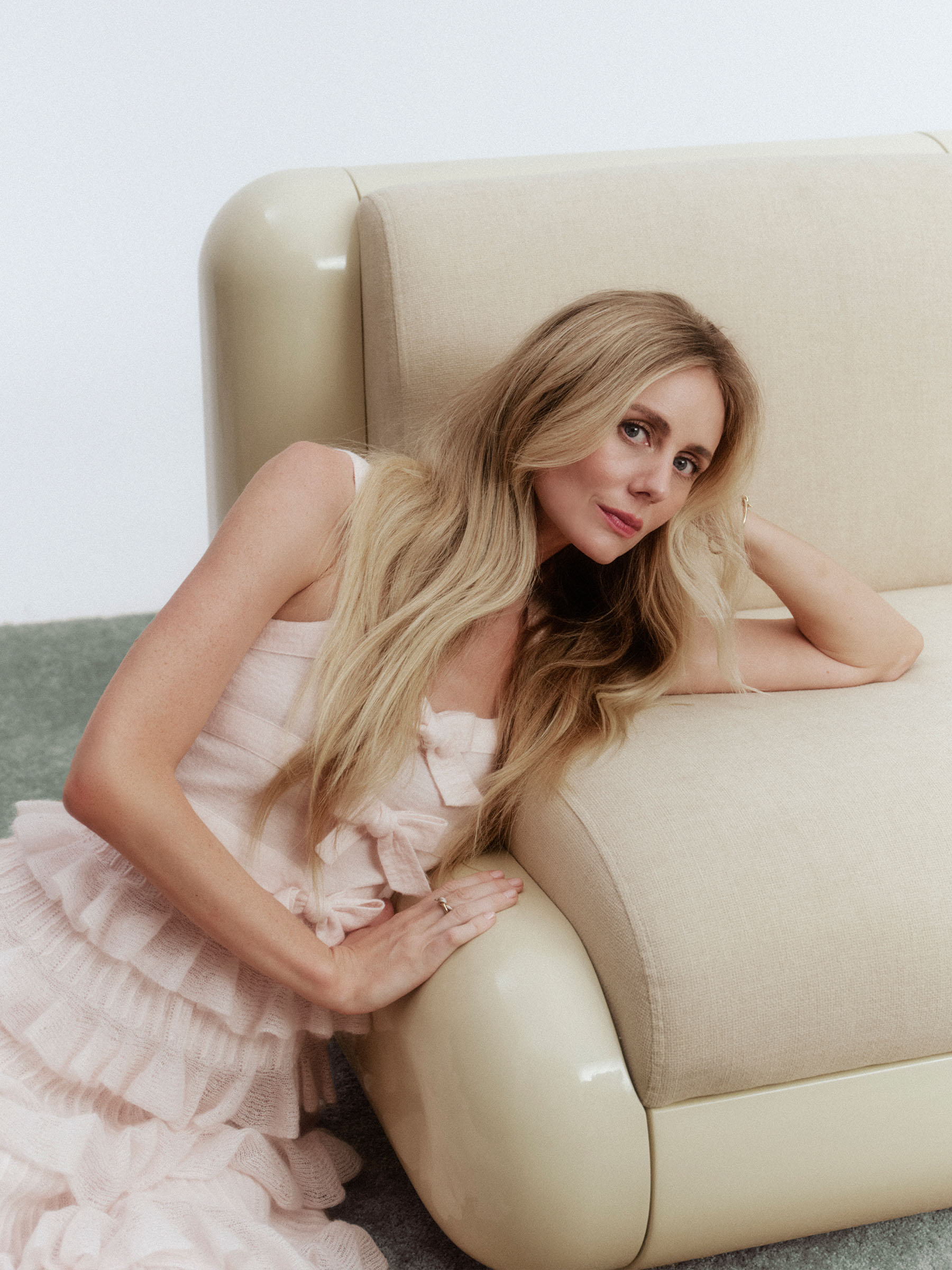
Our conversation takes a turn toward the unfiltered when I ask Lupe about her parenting "ick," and she regales me with a story: "We were in the bath together, and she farted. I was like, 'Oh, that smells bad.' I turned around to adjust the water temperature in the bath, and then I turned back, and—this might be TMI—she had a poop in her hand that she was putting in her mouth. I just saw a human being eat poop. I was like, 'Tyson, you need to get on the computer. Do all the research. Are we okay?' I was trying to wash her mouth. It was terrible, terrible." I think most new parents have a poop story, but this one feels exceptionally, ahem, memorable. Lupe continues, simultaneously laughing and grimacing, "I eat things that she'll spit out, food that she's not interested in. It's gross. I've turned into a rat. Motherhood has turned me into a rat." I briefly consider that "Rat Mom" merch could be fun and then commiserate, offering that sometimes eating the chewed food is easier than walking it over to the trash can. We then go on to talk about the satisfaction of using a SnotSucker, which is a tool that is exactly what it sounds like, and picking our children's noses. I think to myself, "God forbid a woman have hobbies!" It's official: In motherhood, egos have died, standards are low, and thresholds for gross are high. Beneath the humor, we're actually talking about a distinct identity shift. The glossy modern human makes space for the ancient animal instinct underneath.
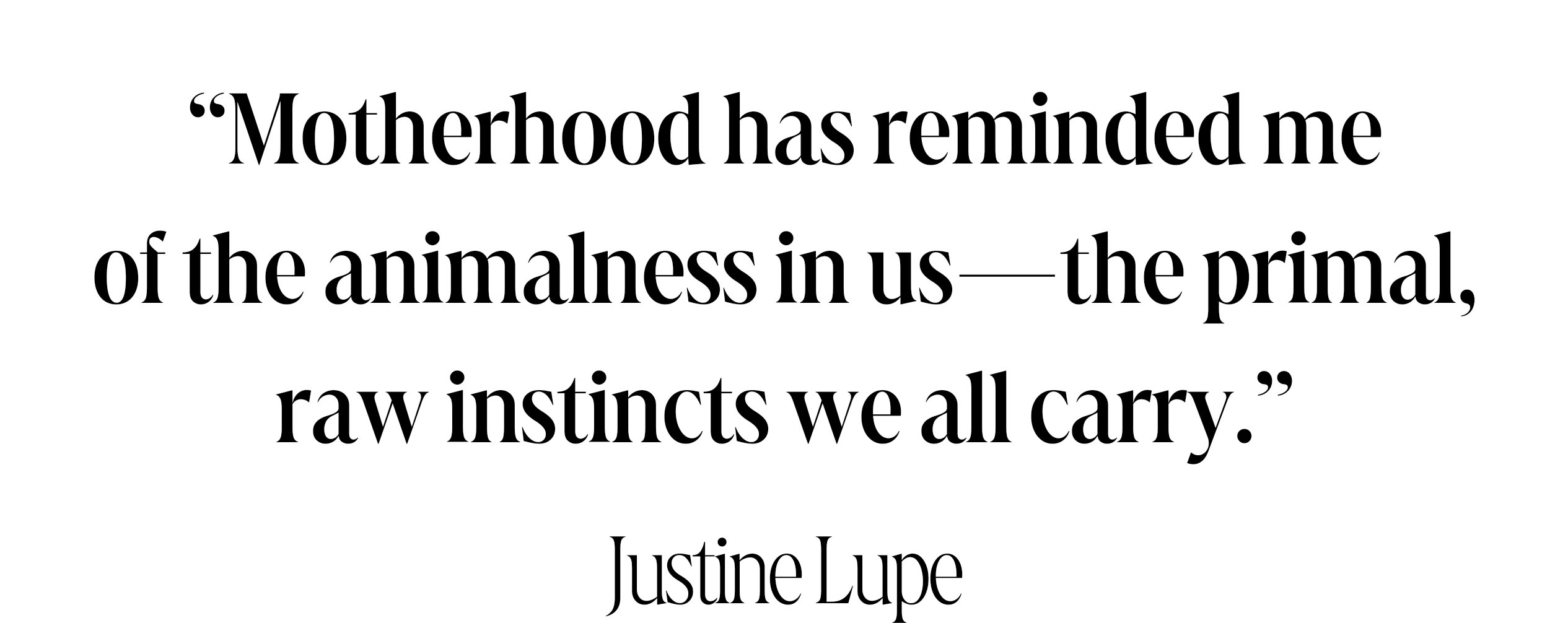
A forced connection to your animal self is indeed a hallmark element of nascent motherhood. It is neither polite nor refined; it's natural and real. Lupe offers a snippet of her birth story, "I had a weird moment when I had her, where she came out and was covered in blood. I had this primal sensation that I felt like a lion or something, where I wanted to lick her head. I didn't do it, but I thought, 'That's an interesting impulse.'" The curious thing about this conversation is that Lupe is a public figure, and she's talking to the press (me) on the record (including video) about things that could be misconstrued or considered unflattering. It's clear she prioritizes the opportunity for authentic human connection—media training be damned. She's fearless and vulnerable and likely keeps her PR team on their toes.
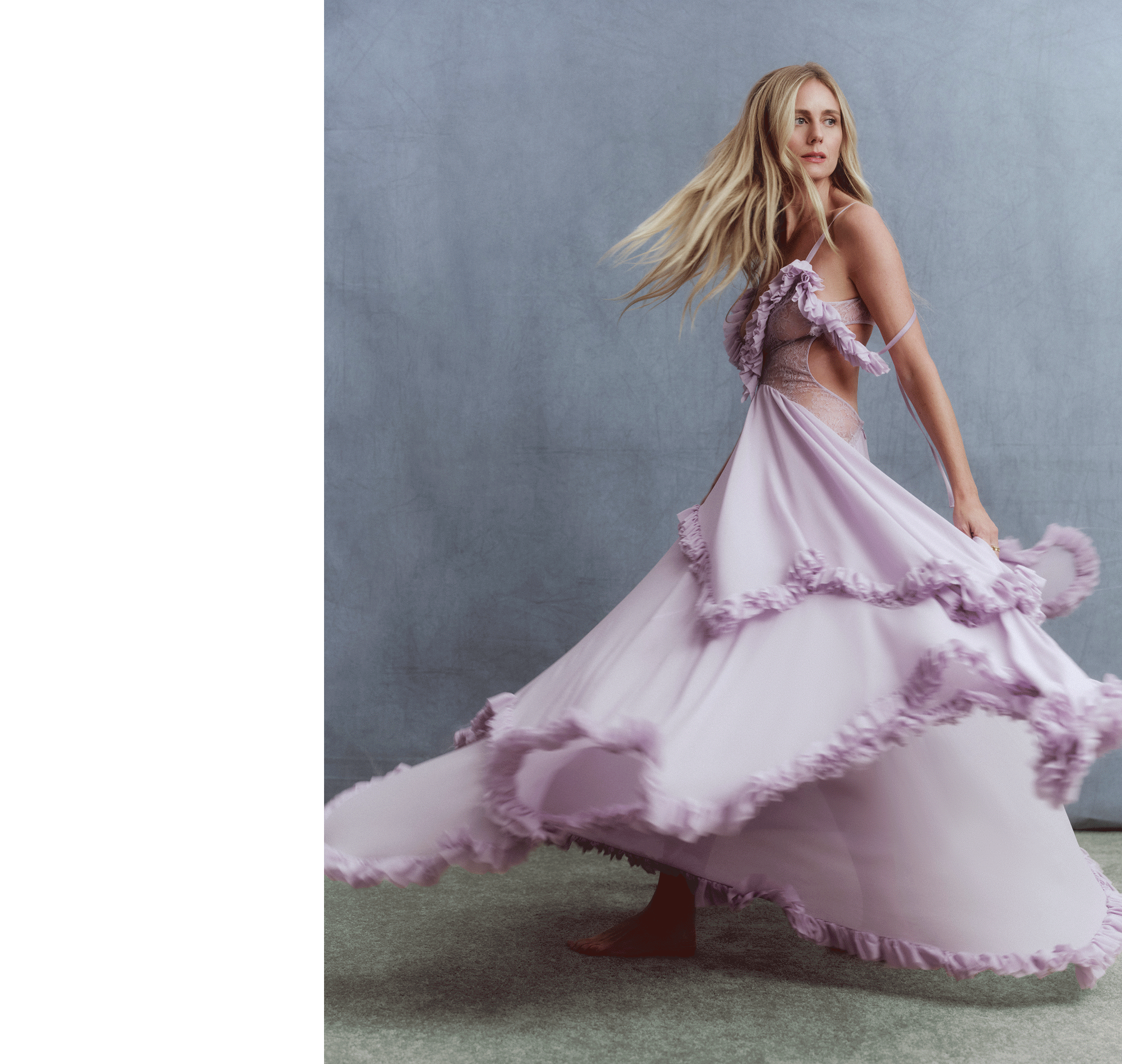
We end our chat with a bit of a palate cleanser, pivoting away from bodily substances to legacy and impact. Lupe's hopes seem to bypass the typical human trappings of wanting to be remembered, to have done something that mattered in a grand way. "I want to be someone who is kind and brings people joy and levity and connection. I want to feel that I have witnessed my daughter, husband, and friends, that I was there for people that I love," she says. It's a humble aspiration, but when you consider that Lupe's presence is not just experienced in person but also beamed into millions of homes across the world, her effect is multiplied.
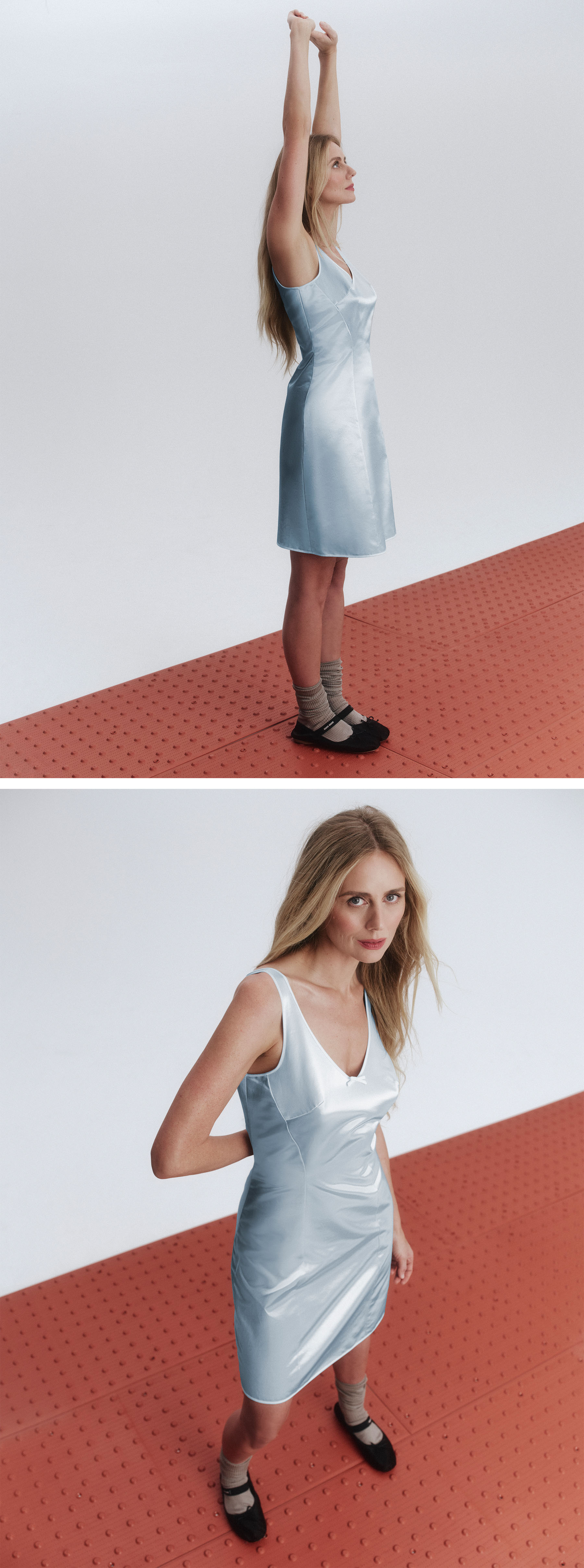
"My aunt sent me a text saying that her friend shared that while she was in the hospital she watched the show," Lupe tells me. "It brightened my day just to bring some sort of an escape or some sort of lightness to people's lives." I share a similar story—I recently asked my pregnant friend if she had her postpartum comfort shows lined up for the newborn bubble, and she noted that her plan was to watch season 2 of Nobody Wants This. Lupe lights up, "It's so nice to hear when someone just needs a little bit of levity that they turn to the show. Even if it's a fleeting thing and not like 100 years from now, people are going to be watching the show. It's nice to be part of any kind of blip of light."
It's Lupe's light, refreshing honesty, and connection to others that make her singular. While most of the world shrinks at the thought of being perceived, Lupe seems to invite, "Perceive me—the real me." It turns out the real her is a force.
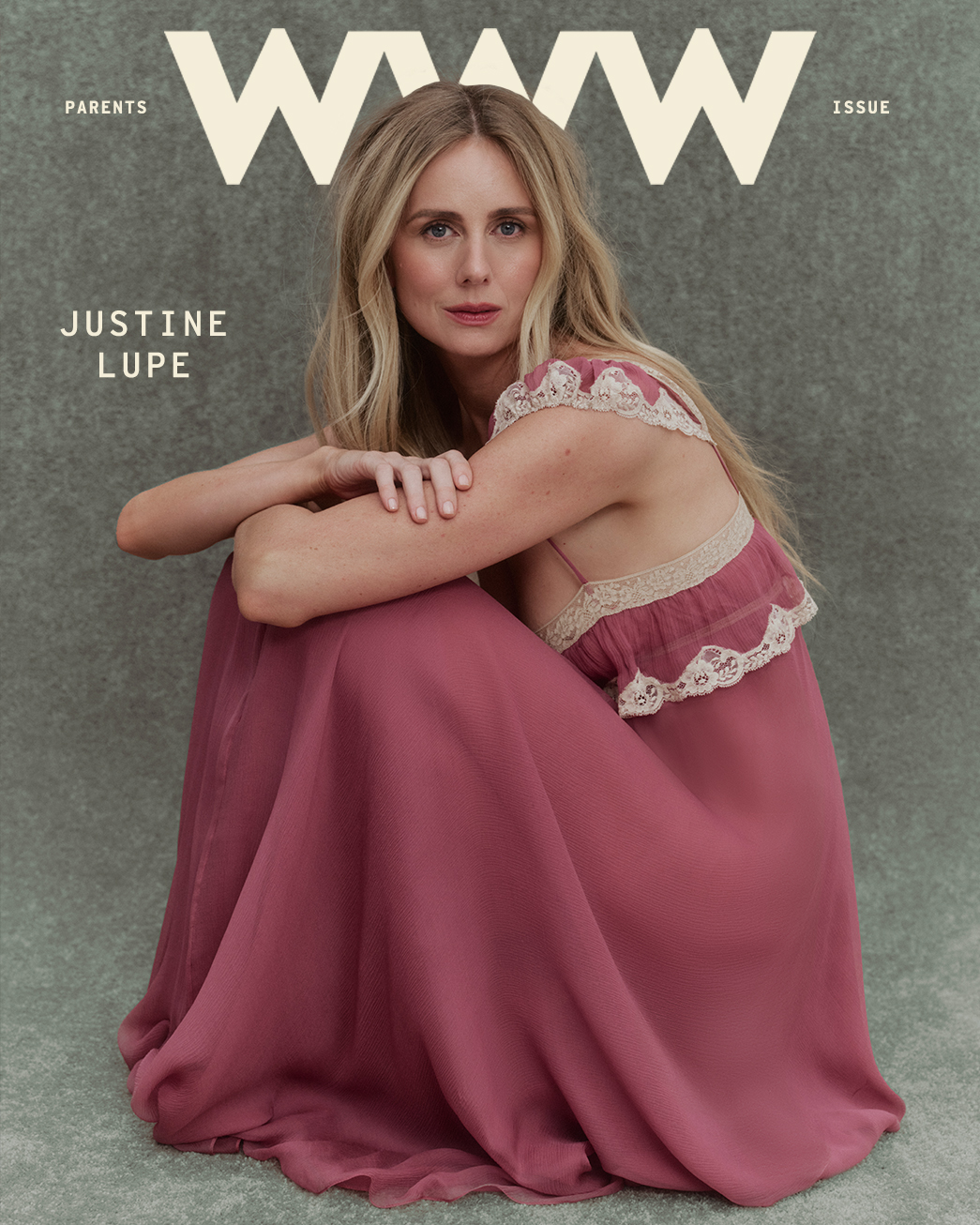
Photographer: Lena Melnik
Stylist: Rebecca Ramsey
Creative Direction: Natalia Sztyk
Hair Stylist: Barb Thompson
Makeup Artist: Samantha Lau
Manicurist: Sonya Meesh
Set Designer: Daniel Horowitz
Entertainment Director: Jessica Baker
Producer: Luciana De La Fe
Kat Collings has over 15 years of experience in the editorial fashion space, largely in digital publishing. She currently leads the vision for editorial content at WhoWhatWear.com as the site's editor in chief, having risen through the editorial ranks after joining the company in 2012. Collings is a Digiday Future Leader Awards nominee, was named Buzzfeed's best fashion Instagram accounts of the year, and is a member of the CFDA Awards Fashion Guild. Prior to Who What Wear, Collings worked on styling projects for brands such as Vogue, Teen Vogue, Lucky, and Oliver Peoples. She graduated from UCLA with a BA in communications and calls Los Angeles home.